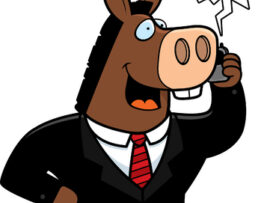When someone promises you that they are going to do something, you rightfully expect them top keep their word. In the event that they fail to do so, how would you describe their behavior – Dishonest? Corrupt? Insincere?
Would you ever think of describing it as a "desecration" of their word? Probably not. Yet that's precisely the description we find in this week's Torah portion, Mattos, which begins with a discussion of the laws of vows and oaths. The verse says: "If a man takes a vow to Hashem or swears an oath...he shall not desecrate his word; according to whatever comes from his mouth shall he do" (Numbers 30:3). Desecration is usually associated with defiling or profaning something imbued with holiness (e.g., vandalizing a synagogue, defacing a Torah scroll), so how are we to understand the idea of desecration when it comes to keeping one's word?
In Genesis 2:7, the Torah describes the creation of the first human being: "And Hashem formed the man of dust from the ground, and He blew into his nostrils the soul of life; and man became a living being." Rashi, in his commentary on this verse, notes that we find earlier in Genesis (1:24) that animals are also described as "living souls"; so what, then, is unique about man? Rashi answers that man's soul is superior because it possesses the power of speech and intelligence. The Torah is teaching us that speech is much more than just the ability to communicate with one another. After all, animals can communicate with each other, yet they don't possess the power of speech. This is because the speech is not only a manifestation of human beings’ higher level of intelligence, but also of their higher level of spirituality and godliness.
The Torah reading from just a couple of weeks ago contains a fascinating illustration of this concept. Bilaam, a spiritual mercenary hired by Balak to curse the Jewish people, was en route to carry out his mission when suddenly, the donkey he was riding miraculously began to speak and rebuke him. I often wondered why G-d would see fit to grant a donkey the power of speech under these circumstances. Perhaps G-d was trying to send a not-so-subtle message to Bilaam that anyone who uses the G-d-given power of speech, which has such potential for holiness, in a harmful, detrimental or illegitimate way, is essentially no better than a talking donkey.
This should give us an entirely different perspective on our power of speech. If speech is associated with our higher level of spirituality, then speech is an instrument of sanctity, potentially imbuing holiness into every word that we utter. This being the case, it's no wonder that the Torah could find no better expression to describe the failure to honor one’s word than a desecration of one's speech.

